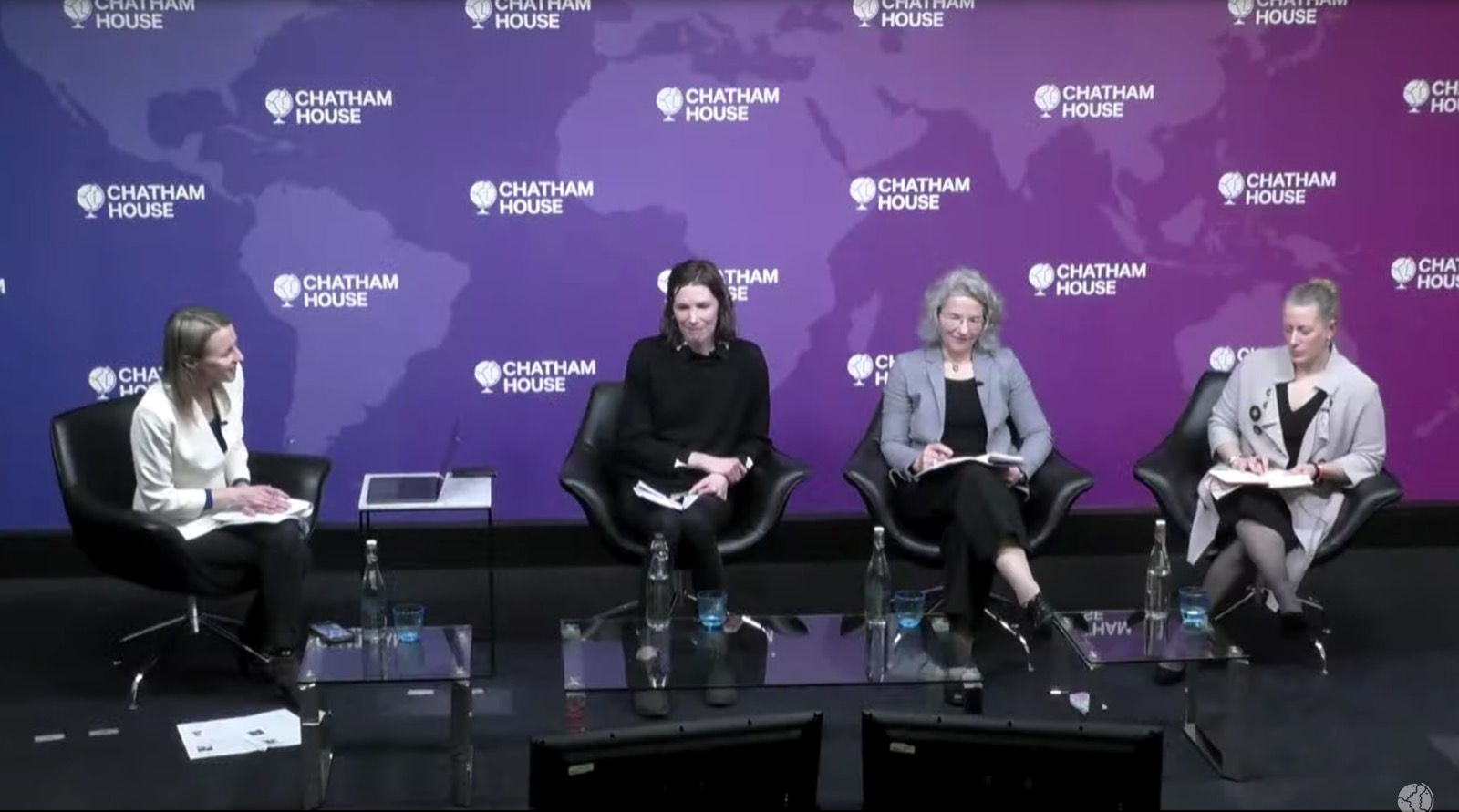
The Chair of the Committee on Ukraine’s Integration into the EU took part
in the discussion ‘Gap in security: the role of women in the modern army’.
The discussion was organised by the Chatham House, the Royal Institute of
International Affairs.
According to Ivanna Klympush-Tsintsadze, in 2014, when Russia's war
against Ukraine began, more than 16.000 women served in the Ukrainian
Armed Forces, mostly in civilian positions. ‘From that time, we began to
open opportunities for women to hold military positions and to get high
ranks. I am very proud that we managed to open the possibility for girls
to study in military lyceums. This helped to double the number of women
serving in the Ukrainian army and enabled women to occupy higher positions
in the army’, the Chair of the Committee said.
With the beginning of the full-scale Russian invasion of Ukraine, the
number of women in the Armed Forces doubled. Today, there are almost
60.000 women in the army. 5.000 of them are directly involved in
hostilities. Unfortunately, more than 100 military women have died during
the full-scale war, more than 100 have been wounded, and about 50 are
missing.
‘Women try to become part of the army on an equal footing with men. They
demonstrate incredible capability in this new type of technological war.
They protect our independence just like men’, said Ivanna
Klympush-Tsintsadze. Despite this, according to her, we are still
observing a kind of glass ceiling in the army for women. A few years ago,
the presence of women in politics was also quite rare. Currently, Ukraine
has quotas for women in politics. There must be at least 30% of women in
political parties. ‘When I entered politics in 2014, after the Revolution
of Dignity, I came from an analytical environment specifically in the
field of security. And I always had to compete with men based on my
expertise. Therefore, it seemed to me strange and humiliating to introduce
quotas for women, for example, in political parties. But later I realised
that this enables us to move this process faster and to get closer to
gender equality in politics. For comparison, in the previous convocation
of the Parliament, we had 12% of women, in this one there are more than
20%’, said Ivanna Klympush-Tsintsadze.
She also informed that criminal liability for sexual harassment has been
increased in Ukraine. But this is not enough. ‘We have to work on
overcoming the fear of affected women and men to talk about it, to report
it. Ukrainian society — both men and women — demonstrated incredible
resilience in this war. I hope that it will not only achieve the victory,
but also become more inclusive and open. And after the war, we will
observe positive gender changes at the level of politicians and in the
field of security’, Ivanna Klympush-Tsintsadze concluded.